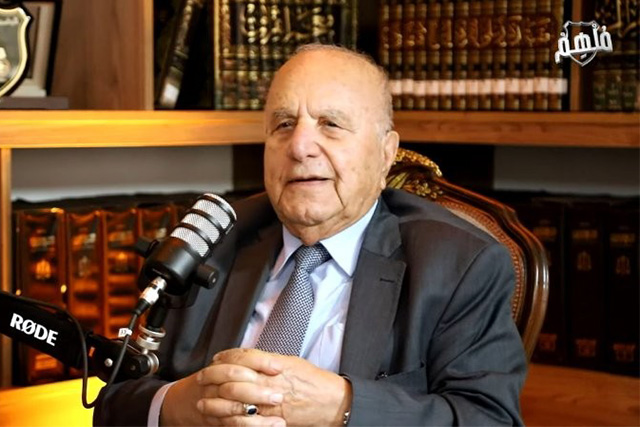Prof. Adnan Badran, Higher Chancellor of the University of Petra and Advisor to its Board of Trustees, emphasized that advancing education in Jordan and the Arab world requires a comprehensive shift away from rote learning toward a space of innovation. He called for a "peaceful revolution" in curricula and educational practices—one that places students at the center of the learning process and lays the foundation for a generation capable of creativity and knowledge production.
Badran made these remarks during the first episode of the "Inspiring Podcast" series launched by the University of Jordan. In the episode, he shared his educational and academic vision, experiences in academic and governmental leadership, and his positions on issues of scientific research, political reform, and development.
He stressed that education based solely on memorization, without fostering understanding or life skills, cannot build a knowledge-based society or a sustainable economy. He added that the future demands an educational system that nurtures critical thinking, blends theory with practice, and is directly linked to the job market and developmental needs.
Badran underlined the necessity of embracing digital education and integrating artificial intelligence tools into classrooms, particularly in light of the Fourth Industrial Revolution. He advocated for the introduction of remote learning tools starting from the early school years, alongside the provision of digital infrastructure that ensures equitable access to education across all regions of the Kingdom, especially underprivileged areas.
On the subject of scientific research, Badran expressed his regret over the low investment in research and development in Jordan and the Arab world. He identified the lack of institutional support and the brain drain as key factors behind the decline in research output. He called for the establishment of a national and pan-Arab fund for scientific research, supported by both governments and the private sector, to finance pioneering projects and strengthen the link between universities and industry.
Badran also reflected on his extensive experience in developing higher education from an academic leadership perspective, including his foundational role as the first president of Yarmouk University in the early 1980s. He described that period as pivotal in his career, marked by administrative and academic challenges. He addressed the student protests that occurred at the time, viewing them as a sign of youth awareness, despite the difficulties they posed for the fledgling institution. He explained how he turned these challenges into opportunities to establish enduring academic traditions and a culture of dialogue in crisis management.
He also spoke about his tenure as President of Philadelphia University, where he focused on integrating excellence with industry and scientific research. Later, as President of the University of Petra, he continued applying his progressive vision, affirming that universities are not places of rote instruction, but laboratories of thought and innovation.
Turning to his political career, Badran discussed his appointment as Prime Minister in 2005, describing it as a unique experience transitioning from academia to executive governance. He explained that his government was formed based on competence rather than quotas, which led to some criticism from communities that felt underrepresented. To avoid conflict with the legislative body, he quickly amended his cabinet before presenting it to the House of Representatives.
He spoke of the difficult decisions he had to make, notably lifting subsidies on petroleum products—an unpopular yet, in his view, necessary decision. He emphasized his belief that economic reform requires bold decisions, even at a political cost.
Badran also touched on his experience with UNESCO, where he served as Deputy Director-General. He said this role gave him a global perspective on issues of education, culture, and development, and helped shape his comprehensive reformist vision.
In closing, Badran addressed youth directly, urging them to believe in their ability to effect change. He described them as the greatest asset for the nation's advancement and stressed the importance of empowering them to take on leadership roles and participate in shaping educational, economic, and social policies—declaring them the true leaders of the future and the drivers of genuine transformation.
